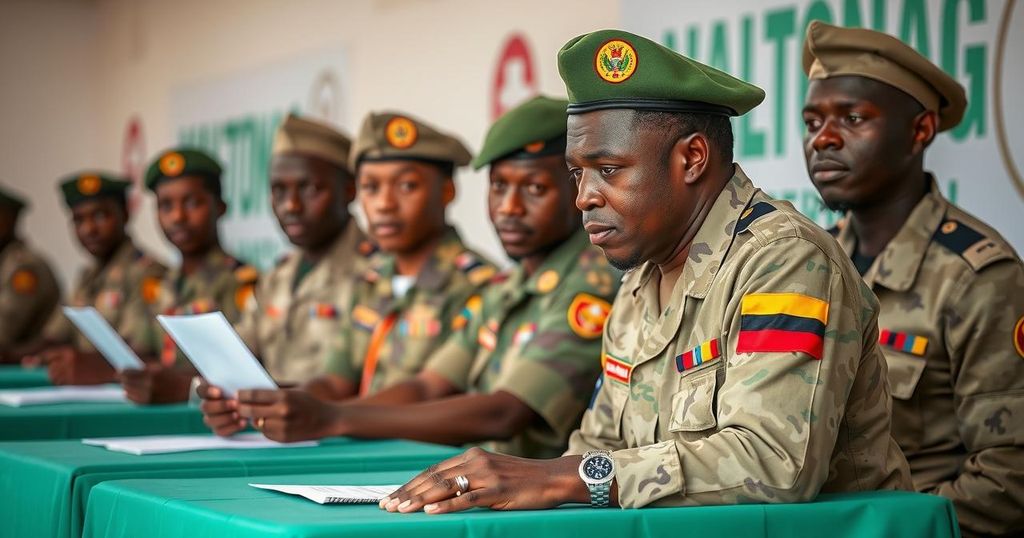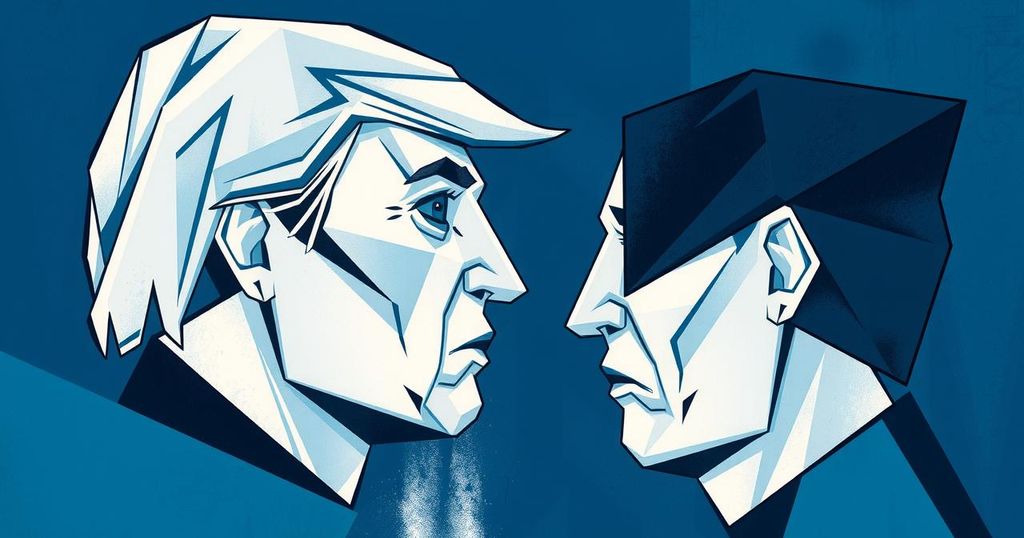Chad Holds Elections Amid Opposition Boycott and Allegations of Fraud
Chad is conducting elections for legislative, provincial, and local offices after three years under military rule. The opposition is boycotting these elections, alleging previous fraud and emphasizing concerns about electoral integrity. The military-led government presents these elections as vital for democratic transition, despite widespread criticism of authoritarian practices and media restrictions surrounding the electoral process.
Chad is holding elections for legislative, provincial, and local positions on Sunday, marking a significant political milestone following three years of military governance. However, these elections are facing a boycott from opposition candidates who allege that the previous presidential election was riddled with fraud. The military regime, led by Marshal Mahamat Idriss Itno, claims these elections are essential for completing the transition to democracy, despite concerns over the integrity of the electoral process and the absence of opposition participation.
With the opposition’s boycott, candidates supporting the ruling party are poised to dominate the elections. Opposition leader Succes Masra urged citizens to avoid voting, labeling the political environment as one of dishonesty. He stated, “It is better to stay at home,” denouncing the established political framework as fraudulent. Masra also highlighted issues of ballot integrity, reporting that over a thousand ballots intended for Bongor allegedly went missing before the elections.
Polling stations are set to function from 6 am to 6 pm, catering to approximately eight million registered voters, monitored by a hundred foreign observers. Despite anticipatory excitement from the ruling party, the vote occurs amid ongoing military tensions and unrest, particularly related to threats from jihadist groups and subsequent parliamentary delays attributed to various crises.
Chad’s last legislative elections occurred in 2011, with numerous subsequent elections postponed due to jihadist violence, financial challenges, and the pandemic. The ruling government, now led by Itno, assumed control after his father’s death in 2021, and establishments such as the transition parliament were formed via presidential decree. However, opposition groups criticize the regime’s increasingly authoritarian tendencies, citing past brutal responses to dissent, like the violent crackdown during protests in October 2022.
The context of these elections is further complicated by a media blackout on election day, stemming from a strike by online journalists protesting government-imposed restrictions. Thus, the key challenges for the elections include an apparent lack of transparency and fairness, drawing into question the legitimacy of the process and the future of democracy in Chad.
Chad has experienced a tumultuous political landscape since the death of long-time leader Idriss Deby Itno in 2021. Following his passing, his son Mahamat Idriss Itno assumed power through a military takeover and subsequently orchestrated a controversial presidential election, which has been denounced by the opposition as fraudulent. The current electoral cycle is positioned by the ruling government as a pivotal step toward restoring democratic governance; however, the boycott by opposition parties raises significant concerns about the electoral legitimacy and political representation in Chad.
The electoral landscape in Chad is fraught with allegations of fraud and political repression, underscored by the boycott from opposition factions and a backdrop of military control. The ruling party’s attempts to facilitate a transition to democratic governance are called into question by the widespread dissent and the underlying threats to political freedoms. As the elections proceed, the challenges of transparency, integrity, and respect for democratic principles remain paramount, casting doubt on the future political climate in Chad.
Original Source: www.france24.com




Post Comment